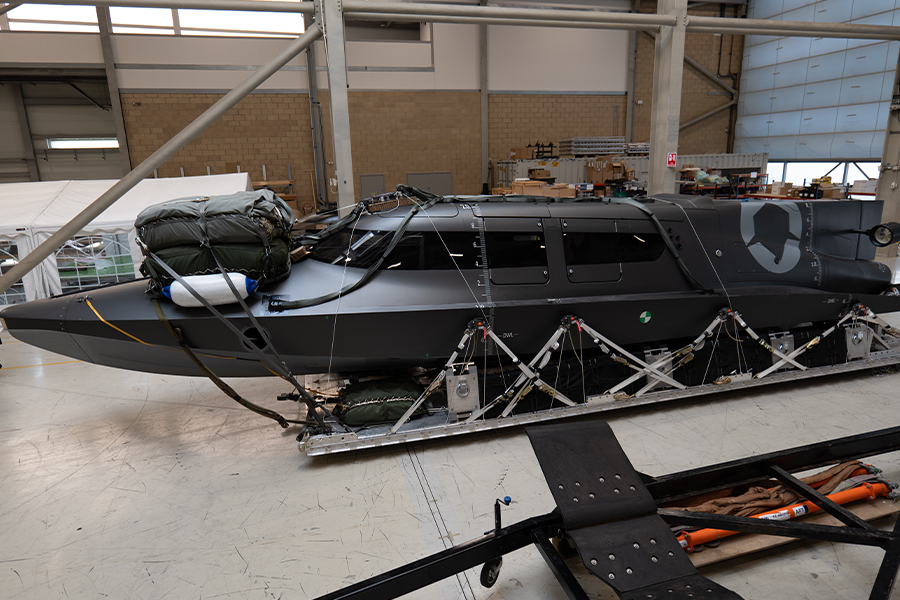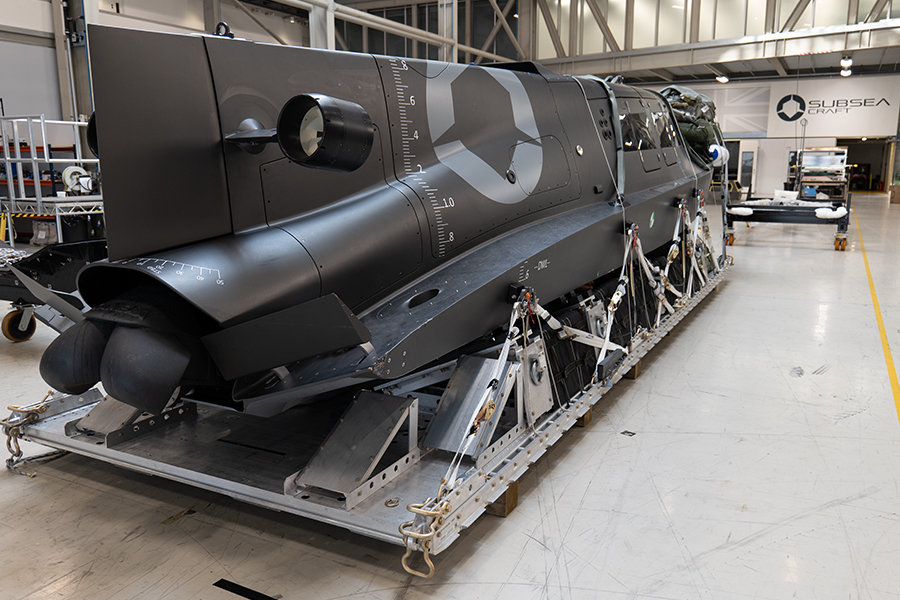SubSea Craft, the SME behind the industry-leading VICTA platform, have today announced that they have successfully demonstrated compatibility with Capewell’s Universal Maritime Craft Aerial Delivery System (UMCADS), a system that allows VICTA to be deployed over long ranges from a military aviation asset.
“We know how important it is to our user community that an insertion craft such as VICTA can be transported and deployed quickly during operations”, said Chief Commercial Officer, Lee Ebsworth. “Our collaboration with Capewell on this project demonstrates our commitment to meeting the needs of our customers. In particular, we see the operational range that this capability enables as well suited to the IndoPacific region.”
VICTA
Combining the range and speed of a long-range surface craft with the covert nature of a submersible vehicle, VICTA is a flexible maritime platform that discretely delivers operators, payloads and equipment into contested waters. Deployable across land, air or sea, VICTA is capable of manned, remote or autonomous control, broadening the spectrum of operations for maritime special operations commanders across a wide range of operating environments.
Mark Lavender, Capewell Europe Operations Director, said “Capewell is delighted to work with SubSea Craft. While our UMCADS design is just one capability from our Next Generation Aerial Delivery Systems (NGADS) portfolio, VICTA, like NGADS, can be used in a variety of roles and missions. With the solution pictured, the craft users can configure VICTA for an airdrop deployment, or, if the operation changes, the UMCADS system can quickly be reconfigured to airdrop alternative crewed or unmanned craft, land vehicles or be rigged to deliver swarms of mid-air-released drones and weapons. This gives the operational commander the decisive operational advantage of having one aerial delivery system in the inventory that can conduct a multitude of operational profiles in any environmental domain.”
Lieutenant General (Retd) Ed Davis, a former Commandant General Royal Marines and now Capewell Europe’s Strategic Director, said “our UK- based aerial delivery SME Team were able to take Capewell’s UMCADS, as recently demonstrated to a military client, and integrate VICTA with the system with no change to the supporting cradle structures, thus validating the universal nature of our system. As such, the user can affect the safe, secure and timely delivery of their watercraft by parachute, and at range, to the operational point of need. This provides greater tactical advantage in terms of security, agility and endurance within the area of operations compared with deploying the watercraft from a maritime surface platform.




